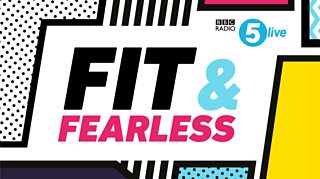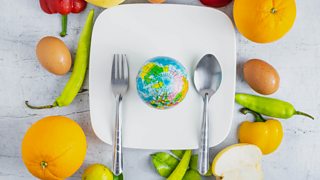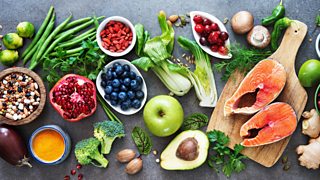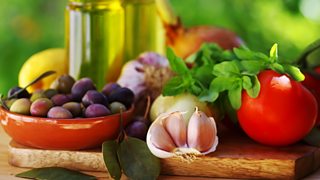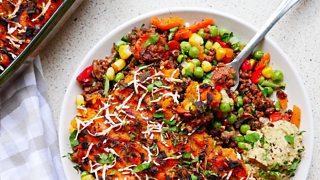Fit & Fearless: The Truth About Sugar
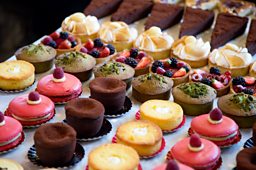
After loads of requests to talk about this topic, the #GirlGains gang decided to dedicate a whole episode to… sugar!
The Fit & Fearless podcasters Vic, Tally and Zanna spoke to registered dietitians Helen West and Rosie Saunt from 'The Rooted Project' who offer science-based nutritional information.
Rosie and Helen explained what a 'sugar rush' is, whether sweet alternatives have anything to offer and what to do at children's birthday parties.
Click here to listen to the whole episode dedicated to the sweet stuff.
What is sugar?
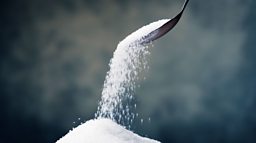
Rosie says:
"Sugar isn't just what you think of as sugar, in terms of the table sugar you put in your tea. Sugar is also found naturally in lots of foods we find growing in the ground, like in plant foods, fruits and vegetables. It’s also found in dairy.
"It can also be added to foods during manufacturing to make it taste good, because sugar is yummy.
"It can improve the texture or quality of the foods, so it gives a biscuit a really nice crunch."
Helen adds:
"Sugar is a carbohydrate and it is found in lots of different foods... I think when [consumers] think of sugar, what they really mean is things like sweets, the sugar you add into your tea, or biscuits and cakes.
"It's sort of used as a catch-all, rather than what sugar actually is which is a carbohydrate that is found in lots and lots of different foods, and we don't usually eat sugar on its own."
What happens to your body when it absorbs sugar?
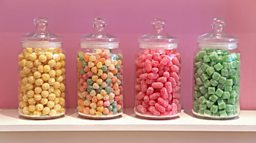
Rosie says:
"So your body breaks off all of those molecules down to sugar, gets absorbed across your gut into your bloodstream, and there is then a hormone called insulin that is produced [which] acts like a key to a door that is on all of the cells in your body.
"Your cells need energy, if they don't get energy, that is not a good thing.
"So insulin acts as a key, unlocks the door and allows that energy - because sugar is fuel - into your body.
"That fuel is used to go on your run, it might be used to build protein, so to build your muscle mass and it might be stored as energy for what you're going to do the next day."
What's the difference between naturally occurring sugars and the sugar I put in my tea?
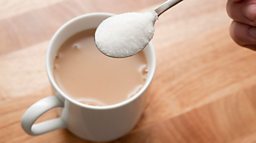
Rosie says:
"If you look under a microscope at sugar that has come from either the sugar you put in your tea or the sugar in a sweet potato for example, a molecule of sugar will look the same because it is the same.
"But obviously a tablespoon of sugar is very different to eating an apple or a sweet potato because those whole foods also contains vitamins, minerals, fibre, lots of other nutrients and it's very different to eating sugar on its own.
"People are really scared of sugar in fruit, they think it is really bad for you but it is not at all.
"It won't cause diabetes, it is not going to make you addicted to sugar and quite frankly, not enough of us are eating fruit and vegetables in the UK, so we don't need anything that is going to vilify the sugar in fruit and veg."
Helen adds:
"When we talk foods, we try not to reduce diets down to single foods and nutrients.
"Because actually, when we're talking about health, what we need to be thinking is balance over time rather than single foods or nutrients, and that's why context really matters."
Is there such a thing as a sugar rush?

Helen says:
"I think what people mean by [a sugar rush] is that they have a really big high spike in their blood sugar levels and they get that big crash afterwards.
"Most of us, in bodies that don’t have a disease, are able to cope with that. So it's not really a thing.
"We wouldn't expect you to go away and if you ate a doughnut, then to have this big ridiculously high blood sugar level, followed by a ridiculously low level.
"Your body is more than capable of dealing with that. So, no, they're not really a thing."
Rosie adds:
"I think [sugar rushes] can be as a result of so many different things.
"So if you're restricting through the day for example, and then you feel tired and sluggish, you're more likely to reach and maybe for something quick and easy and feel your energy levels lift and get that kind of afternoon slump after afterwards. [...]
"We all naturally have kind of a slump around 15:00, just the way our body clocks actually work, the circadian rhythm of our bodies is actually a thing."
How much sugar is too much?

Rosie says:
"What is recommended is no more than 30g of sugar per day. But I'm not sure how relevant that is to people's everyday life.
"I think if you're concentrating on getting lots of fruits and vegetables, some plant foods into your diet, if you eat dairy, some meat and then not too much of those other foods that contain a lot of added sugar, you'll be doing OK.
"It's important to think about how you are feeling when you are eating those sugary foods as well.
"When you go to the cinema and you are getting that bag of sweets, are you really enjoying them, because you should be. Or are you eating too much and they're making you feel quite crap.
"It's those sorts of signals that I think are a bit more important."
Helen adds:
"I think when we're talking about health, the thing that is really important is balance and variety over time.
"So whether you're vegan or whether you're a meat eater, you're looking a variety of foods over time so you can get lots of different nutrients.
"If your diet is predominantly made up of very high sugary foods, you're going to be missing out on essential nutrients and that's basically the bottom line.
"The same would go if your diet is predominantly made up of broccoli. It would have the same effect, you wouldn't be even getting all the nutrients you need [...].
"People have different lifestyles, different activity levels, so it's quite individual and it's hard to prescribe it from a public health level.
"But I think what we need to be looking at is our own diet and our own balance over time. And that's not to say they can't fit, you don't need to be fearful of them, but what does your diet look like as a whole."
Can you get addicted to sugar?
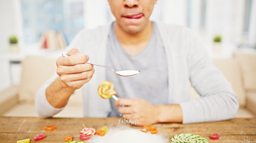
Helen says:
"There is this idea that sugar might act like an addictive substance, like heroin or tobacco, and the idea is [that] because it is quickly absorbed by your body... it lights up 'pleasure centres' in your brain.
"But most of the research for sugar addiction is in animal studies, so we don't have any good evidence in people.
"Also, the results of animal studies aren't really surprising. So if you think about it, food is supposed to be rewarding.
"It is not really surprising that when you eat something, you enjoy it. Because in times gone by we needed foods to be rewarding so we go out and seek it out.
"So there is some crossover potentially as well between disordered behaviour and addictive behaviour.
"It might be that some people feel out of control around sugar, but that is more relational than a physical addiction.
"So that's something that maybe needs to be looked at more. But at the moment we don't have great evidence."
What about the alternatives?
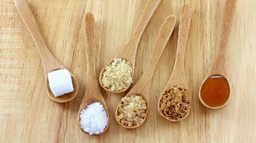
Rosie says:
"We don't want to vilify these healthy alternatives at all, but we want to make sure that people are making an informed decision when they're choosing them, because they do tend to be a bit more expensive.
"Really they are just sugar with a sexy name and a sexy price tag.
"If you look at it under a microscope, again, it's going to be a molecule of sugar.
"Agave, date syrup, honey - if it's got nectar in the name that's another clue. Some of these sugars are called 'refined sugar free', so that means they've been processed a bit less and because they probably have come from a plant, they might contain some additional nutrients on top of sugar.
"However, if you're getting a significant amount of nutrients from that date syrup or agave nectar you're probably having too much of it and not getting enough of the other foods that your body needs."
Listen to the podcast to find out more:
- What would happen to your body if you cut out sugar and carbs?
- What about sugar at children's birthday parties?
- How about sweeteners?
- How do you know what is naturally occurring sugar or added sugar?
- Is there a best time of day to consume your sugar?
- Do we need to check food labels to look for sugar?
- Where has the fear of sugar come from?
-
![]()
Fit & Fearless: The Truth About Sugar
Zanna, Tally and Vicky are joined by dietitians Helen West and Rosie Saunt from 'The Rooted Project' to bust some myths around sugar - from sweets and chocolate, to cakes and kids' parties!
More from Fit & Fearless
-
![]()
Healthy Eating for a Healthy Planet
Environmental researcher Marco Springmann answers questions about sustainable diets.
-
![]()
Your Nutrition Questions Answered
The Fit & Fearless podcasters Vic, Tally and Zanna put listeners' questions to nutritionist Pixie Turner.
-
![]()
How to get more plants onto your plate - the Mediterranean way
Doctors Kitchen author Dr Rupy Aujla explains how to get more greens into your diet.
-
![]()
Nutritionist Rhiannon Lambert shares her meal plan - to help you become fit and fearless!
